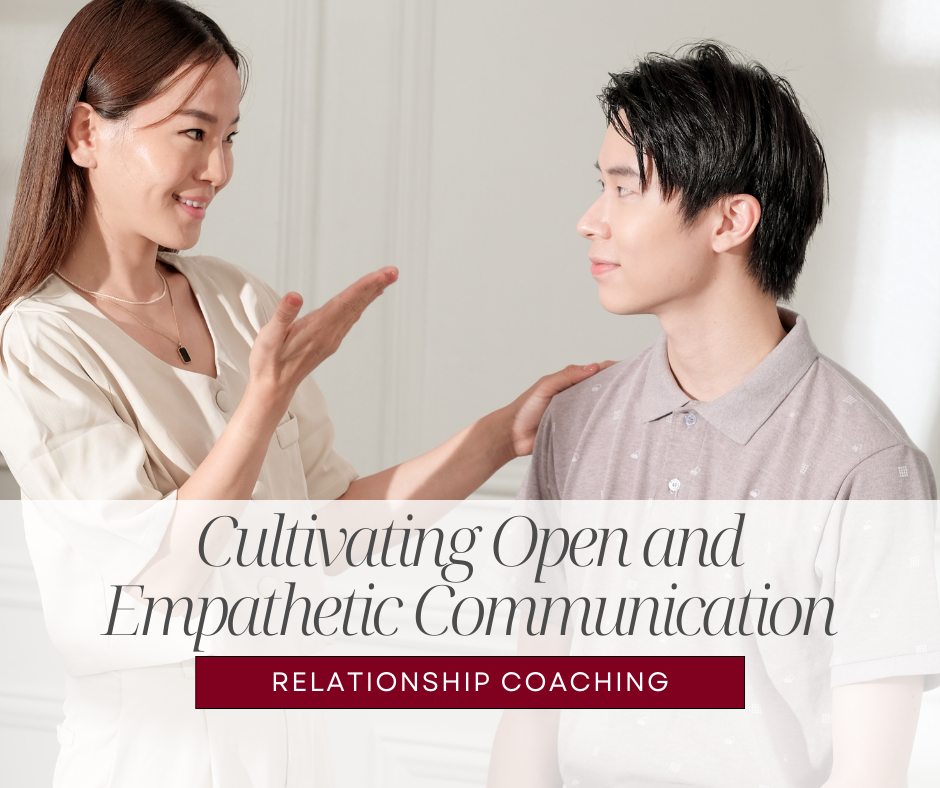Strategies for Cultivating Open and Empathetic Communication
Explore strategies aimed at promoting open and empathetic communication within interpersonal relationships. Open and empathetic communication helps foster healthy and meaningful relationships. They are the cornerstone of successful relationships, contributing to emotional understanding, mutual support, and relational satisfaction. Open communication involves honest, transparent, and assertive expression of thoughts, emotions, and needs. Empathetic communication entails understanding and sharing the feelings and perspectives of others.
Strategies for Promoting Open Communication:
Active Listening: Engaging in active listening fosters attentive understanding and validates the speaker's emotions, promoting an open and respectful dialogue.
"I" Statements: Framing communication using "I" statements emphasizes personal feelings and experiences, reducing defensiveness and encouraging open discussion.
Constructive Feedback: Providing constructive feedback in a nonjudgmental and supportive manner facilitates open communication and enhances self-awareness.
Clarification and Reflection: Seeking clarification and reflecting on the speaker's message promotes accurate understanding and minimizes misinterpretations.
Strategies for Enhancing Empathetic Communication:
Perspective-Taking: Encouraging individuals to adopt the perspective of others cultivates empathy and enhances mutual understanding.
Emotional Validation: Expressing empathy and validating emotions create a safe space for emotional expression, deepening empathetic connections.
Nonverbal Communication: Paying attention to nonverbal cues, such as body language and facial expressions, enhances empathetic responsiveness.
Empathy Training: Engaging in empathy-focused exercises and role-play enhances empathetic skills and promotes emotional attunement.
Mindful Communication: Practicing mindfulness enhances both open and empathetic communication by fostering present-moment awareness and reducing reactivity.
Some of the benefits of practicing the above include:
Emotional Resonance: Strategies that encourage emotional validation and empathy trigger mirror neuron activity, deepening emotional attunement.
Trust and Vulnerability: Open and empathetic communication builds trust by demonstrating honesty, vulnerability, and emotional support.
Conflict Resolution: Effective communication strategies mitigate conflict by prioritizing active listening, mutual understanding, and collaborative problem-solving.
Relationship Enhancement: Implementing these strategies within relationships fosters emotional connection, reduces misunderstandings, and enhances relationship satisfaction.
If you’d like personalized support in exploring relational and communication patterns, practicing and integrating mindfulness, and/or addressing any of the strategies mentioned above, click here to request a session.
I am a PhD in Clinical Sexology candidate at Modern Sex Therapy Institutes and have a Master of Science in Educational Psychology. I work with individuals, couples, non-monogamous relationships, and groups in topics related to sexuality, emotional regulation, communication dynamics, and changing behaviors.


